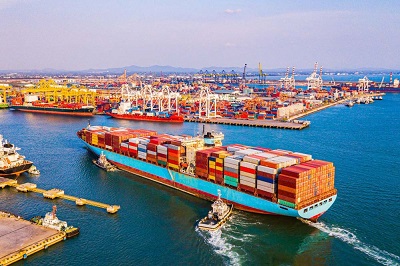7 Urgent Challenges Facing South Africa’s Farming Sector in 2023
Agriculture in South Africa continues to be a significant component of the economy, with substantial potential for poverty alleviation. It also plays a pivotal role in the country’s political economy, as demonstrated by recent policy documents from the ruling African National Congress (ANC).
The ANC acknowledges the pivotal role of agriculture in elevating impoverished South Africans out of poverty, emphasizing the potential for increased food production, robust economic activity, and job creation.
This perspective aligns with substantial evidence showing that, on average, agricultural growth has a more pronounced poverty-reduction impact compared to an equivalent level of growth in other sectors. This underscores the imperative of investing in and expanding agricultural production, particularly to benefit disadvantaged rural communities.
This viewpoint has garnered support for quite some time, dating back to the publication of South Africa’s National Development Plan in 2012. The plan advocated for the expansion of agricultural production and agro-processing, highlighting the potential to generate nearly a million jobs.
Nevertheless, year after year, various challenges have impeded the country’s progress toward its agricultural expansion objectives.

In 2023, the landscape remains consistent, with 7 prominent themes expected to shape the agricultural sector, especially in the first half of the year. These include:
- Energy Shortages and Associated Costs: In the wake of the most severe power outages the country has ever witnessed, the sector will grapple with the repercussions of energy shortages and their financial impact on businesses and consumers.
- Export Expansion: Efforts to broaden export opportunities will be a key focus, aiming to increase the sector’s global reach.
- Land Reform: The ongoing debate and actions surrounding land reform will continue to be a significant point of discussion and potential change within the agricultural sector.
- Local Administration Challenges: The repercussions of struggling local administrations on the agricultural sector will be closely monitored, as they could have far-reaching consequences.
- Regulatory Progress: The sector’s growth will be influenced by the pace of progress in critical regulatory areas that affect agriculture.
- Sector Financing: Financing and investment strategies for the agricultural sector will be of paramount importance in realizing its full potential.
- Business and Financial Management: Educational institutions can collaborate with research organizations to ensure that farming education incorporates the latest scientific discoveries and best practices
Without effectively addressing these challenges, the agricultural sector may fall short of achieving its growth and job creation potential in the coming year.
The repercussions of power cuts are set to take center stage, with increased discourse surrounding their impact on agriculture and the production of food, fiber, and beverages in South Africa.
Persistent power shortages pose a significant and pervasive challenge to the nation’s economy. As 2022 drew to a close, the South African Reserve Bank underscored the risks these ongoing power cuts pose to the country’s economic growth in 2023.
While the agricultural sector and food producers have not always been as vocal as other industries, such as mining, regarding the effects on their operations, this stance is likely to shift in the coming year. Power outages are now disrupting the production of even essential food items, including potato chip processing, milling, and poultry meat processing.
At the primary production level, farmers relying on irrigation systems are grappling with production difficulties in the current energy-deficient environment. Furthermore, disruptions are rippling throughout various food value chains. Importantly, these disruptions translate into additional costs for both food companies and farmers, some of which may eventually be passed on to consumers. Consumer food price inflation is already on the rise, estimated to have averaged around 9% in 2022 (up from 6.5% in 2021), primarily driven by global challenges in the agricultural commodity sector.
Energy Shortages and Associated Costs
The issue of energy shortages and their associated costs looms large as a pressing concern. South Africa faces intensified discussions about the repercussions of inadequate energy supply on agriculture, food, fiber, and beverage production.
Persistent power cuts have emerged as a substantial challenge, impacting the broader economy. Toward the end of 2022, the South African Reserve Bank underscored the risks posed by continuous power shortages to the country’s economic growth prospects in 2023.
While sectors such as mining have been more outspoken about these challenges in the past, the agricultural sector and food producers are increasingly vocal about the disruptive effects on their operations. Power outages have begun to disrupt the production of even essential food items, including potato chip processing, milling, and poultry meat processing.
At the primary production level, farmers relying on irrigation systems face significant hurdles in the current energy-deficient environment. Furthermore, disruptions ripple through various food value chains, introducing additional costs for food companies and farmers, some of which may eventually be passed on to consumers. Already, consumer food price inflation is on the rise, estimated to have averaged around 9% in 2022 (up from 6.5% in 2021), largely due to global challenges in the agricultural commodity sector.
Export Expansion
Expanding exports is a pivotal theme that will significantly influence South Africa’s agricultural sector in the upcoming year.
The drive to broaden export opportunities has become increasingly prominent, aiming to enhance the sector’s global reach and competitiveness.
This strategic focus is motivated by the need to access and capitalize on international markets, thereby boosting the country’s agricultural trade. Expanding exports not only contributes to the sector’s growth but also enhances economic resilience and supports job creation, aligning with broader developmental goals.
Efforts in this direction will involve exploring new markets, diversifying products, and optimizing trade agreements to foster sustainable growth and ensure South Africa’s agricultural products reach a wider global audience.

Export Expansion – 7 Urgent Challenges Facing South Africa’s Farming Sector in 2023
Land Reform
Land reform continues to be a pivotal issue within South Africa’s agricultural sector, with far-reaching implications for the country’s economic and social landscape.
The ongoing discourse and actions related to land reform underscore its significance. This multifaceted topic involves addressing historical injustices, promoting equitable land distribution, and facilitating access to land for previously disadvantaged communities.
Land reform policies and initiatives seek to rectify historical imbalances while ensuring sustainable agricultural practices and economic development. This process is complex, involving considerations of property rights, compensation mechanisms, and the preservation of agricultural productivity.
As South Africa grapples with the challenges and opportunities associated with land reform, it remains a central and evolving component of the agricultural sector’s development and transformation efforts.
Local Administration Challenges
The challenges within local administration pose a growing concern for South Africa’s agricultural sector, with potential repercussions for its stability and performance.
The country has experienced difficulties and disruptions in local administrations, which can have a cascading effect on various aspects of the agricultural industry. These challenges may include issues related to governance, service delivery, infrastructure maintenance, and regulatory oversight at the local level.
Local administrations play a crucial role in providing essential services and maintaining the infrastructure that supports agricultural activities, such as roads, water supply, and land use regulations. When these administrations struggle or face inefficiencies, it can lead to delays, increased costs, and uncertainty for farmers and agribusinesses.
Addressing these local administration challenges is essential for creating a conducive environment for agricultural growth, ensuring that the sector can operate efficiently and contribute to broader economic development.
Regulatory Progress
The pace of regulatory progress is a critical factor shaping South Africa’s agricultural sector, with implications for its growth, sustainability, and competitiveness.
Efficient and adaptive regulations are essential to facilitate agricultural activities, ensuring they adhere to safety, environmental, and quality standards while promoting fair trade practices. Regulatory frameworks also govern land use, property rights, and market access, making them pivotal in shaping the sector’s trajectory.
The agricultural industry’s ability to innovate, expand, and compete on a global scale is closely tied to the effectiveness and responsiveness of regulations. Delays or inefficiencies in regulatory processes can hinder innovation, investment, and market access, potentially impeding the sector’s overall performance.
Therefore, making progress on key regulations is imperative for unlocking the full potential of South Africa’s agricultural sector, allowing it to thrive, create jobs, and contribute to the nation’s economic growth.
Sector Financing
The financing of the agricultural sector is a crucial aspect that significantly impacts its ability to grow, modernize, and fulfill its potential in South Africa.
Access to adequate and affordable financing is essential for farmers, agribusinesses, and other stakeholders within the agricultural value chain. It enables them to invest in technology, infrastructure, and sustainable practices, thereby enhancing productivity and competitiveness.
Financing also plays a pivotal role in addressing various challenges faced by the sector, such as droughts, market fluctuations, and the need for modernization. It allows for risk management strategies, diversification, and the adoption of innovative agricultural practices.
Additionally, sector financing can contribute to job creation, rural development, and poverty reduction by supporting smallholder farmers and agribusinesses, particularly in underserved areas.
Therefore, ensuring that the agricultural sector has access to appropriate and sufficient financing is essential for harnessing its potential as a driver of economic growth, food security, and social development in South Africa.
Business and Financial Management
Farming education is critical for the development and sustainability of the agricultural sector. It encompasses a wide range of knowledge and skills that are essential for individuals and communities engaged in farming. Here are some key aspects of farming education:
- Agricultural Training Institutes: Establishing and supporting agricultural training institutes or colleges is essential for providing formal education and training in agriculture. These institutions offer diploma and degree programs in various agricultural disciplines, including agronomy, animal husbandry, horticulture, and agricultural engineering.
- Extension Services: Agricultural extension services play a crucial role in educating farmers about modern farming practices, technologies, and sustainable agricultural methods. Extension agents work directly with farmers to disseminate knowledge and provide hands-on training.
- Online and Distance Learning: With advancements in technology, online courses and distance learning programs have become increasingly popular. These platforms offer flexible learning opportunities for aspiring and practicing farmers, allowing them to acquire knowledge at their own pace.
- Farmers’ Field Schools: These are practical, hands-on learning platforms where farmers gather to learn from one another and from experts. They focus on specific agricultural practices or crop cultivation methods and provide a valuable peer learning experience.
- Government Support: Government agencies can play a significant role in funding and regulating agricultural education programs. They can also provide scholarships and financial support to students pursuing agricultural degrees.
- Research and Development: Encouraging research in agriculture is essential for innovation and continuous improvement. Educational institutions can collaborate with research organizations to ensure that farming education incorporates the latest scientific discoveries and best practices.
- Sustainable Agriculture: Given the growing emphasis on sustainability, farming education should include modules on sustainable and organic farming practices, conservation agriculture, and environmental stewardship.
- Entrepreneurship Training: Farmers need business and financial management skills to run successful farming operations. Entrepreneurship training can help them understand market dynamics, pricing, and value chain management.
- Community-Based Education: Many smallholder farmers are part of rural communities. Community-based education programs can be tailored to the specific needs and challenges of these communities, including addressing issues like food security and climate change adaptation.
- Continuing Education: Farming education should not be limited to initial training. Continuous learning and professional development opportunities should be available to farmers throughout their careers.
- Partnerships: Collaboration between government agencies, educational institutions, non-governmental organizations (NGOs), and private sector entities can enhance the effectiveness of farming education programs. These partnerships can pool resources, expertise, and knowledge to benefit farmers.
Farming education is vital for improving agricultural productivity, enhancing food security, and promoting sustainable farming practices. It equips individuals with the skills and knowledge they need to meet the challenges of modern agriculture and contribute to the development of rural communities and economies.
Addressing the challenges in South Africa’s agricultural sector
Addressing the challenges in South Africa’s agricultural sector, including energy shortages, export expansion, land reform, local administration challenges, regulatory progress, and sector financing, requires a multi-pronged approach and coordinated efforts from various stakeholders. Here are some potential solutions:
- Energy Solutions:
- Invest in renewable energy sources, such as solar and wind power, to reduce reliance on an unstable power grid.
- Improve energy infrastructure and maintenance to minimize power outages.
- Encourage energy efficiency practices in agriculture, including the use of energy-efficient equipment and technologies.
- Export Expansion:
- Promote market research and identify high-demand products in international markets.
- Strengthen trade agreements and diplomatic relations with key trading partners.
- Provide support and incentives for farmers and agribusinesses to meet international quality and safety standards.
- Land Reform:
- Implement transparent and fair land reform policies that consider the interests of both landowners and previously disadvantaged communities.
- Provide technical and financial support to new landowners to ensure successful agricultural production.
- Encourage partnerships between emerging and established farmers to facilitate knowledge transfer and skills development.
- Local Administration Improvement:
- Enhance governance and transparency at the local level to improve service delivery and regulatory oversight.
- Invest in training and capacity-building for local administrators to improve their effectiveness.
- Foster collaboration between local governments and the agricultural sector to address infrastructure and service needs.
- Regulatory Progress:
- Conduct regular reviews of existing regulations to identify and eliminate unnecessary bureaucracy.
- Involve stakeholders from the agricultural sector in the regulatory development process to ensure practical and effective regulations.
- Develop a clear and consistent regulatory framework that promotes innovation and investment.
- Sector Financing:
- Establish dedicated financing programs and funds for the agricultural sector, including affordable loans and grants for smallholder farmers.
- Encourage public-private partnerships to mobilize investment in agricultural infrastructure and technology.
- Promote financial literacy and access to financial services among farmers and agribusinesses.
To implement these solutions effectively, it is essential for the government, private sector, and civil society to collaborate, prioritize the agricultural sector’s development, and ensure that policies and programs are tailored to the specific needs and challenges of South Africa’s agriculture.
YouTube Channel: Farming South Africa
Facebook Page: Farming Life
Back To Home Page: Farming South Africa

